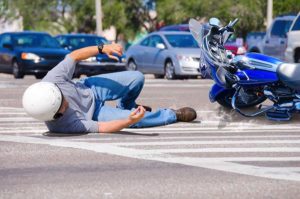Bad wrecks and crashes with injuries bring in the police, usually with a fast response. It’s typical for the Houston police to only respond when the crash has injuries that require first responders. When police officers take a police report at a crash site, you can go through and find out what the officers documented by requesting your police report through the Houston reporting system.
The account and thought of the officers involved in the report can play a substantial role in your crash resolution plan. With a skilled auto collision attorney, you can get on board to handling your claim and taking charge of showing that the other driver was clearly at fault. The result is that you should have a clear path laid out through the information provided in this formal report.
What is in a Police Report?
Police reports are long, confusing, and full of codes that we just don’t understand. But what is included is factors and conditions, or a sequence of events which will innately determine who was at fault. The officers themselves don’t sit down and say Driver A did it, but they lay out the facts in a way that it becomes clear that there’s nothing else but the evidence, and it clearly explains who was at fault.
The codes involved on a police report can include something like “failed to yield,” or “asleep,” or even, “disregard stop and go signal.” These codes help to elaborate on the situation, and the officers can involve many other them if there’s more than the one-factor present. What happens then is that they’ll provide a sequence of events with codes that acknowledge things like “collision involving a motor vehicle in transport,” or “collision involving the fixed object.”
Through the use of those codes and all the information provided by the drivers and witnesses, the officers can recreate the crash on paper. What they do is they take all the information related to the drivers and victims. Things like driver’s license numbers, phone numbers, insurance information, and more are recorded on the crash report.
Then the officers go through all applicable codes that identify the types of vehicles involved and all the elements of the wreck that may be difficult or overly lengthy to explain. Then officers can include their notes.
How Do the Police Decide Who is at Fault?
In their police notes, they may make statements that appear to be a direction of who was at fault. They may make statements such as “SUV impacted sedan,” in which it makes it seem as though the SUV is at fault. But, if the sedan were stopped in a traffic lane or merged into a lane without signaling, then it would not be the SUV’s fault necessarily. The issue that people have with these types of claims is that they do paint one driver as the at-fault driver.
Police don’t inherently decide who is at fault, and they’re not there to serve that purpose. They are there to oversee the cleanup, establish the exchange of information, and manage the scene. They will also issue citations for traffic infractions, which can help determine fault.
For example, if one driver got a ticket for aggressive driving, speeding, and distracted driving, then it’s very likely that they are more at fault.
Can a Police Report Prove Fault for Insurance Companies?
No, a police report will never replace the fault decided by an insurance company or a judge. These reports serve to prove what officers on the scene observed and reported. That means that it’s a formal document, but it’s not the end-all-be-all.
Police file the reports as part of their own process, and an insurance claim can go through without a police report, although it’s not a good idea. Instead of helping people determine fault, insurance companies will often do anything they can to establish that their driver was less at fault than the other driver, and that can make for some brutal back-and-forth arguments.
Should You Communicate or Connect with a Houston Auto Accident Attorney?
In more cases than not, you should connect with a local attorney because an auto accident attorney can provide access to resources and planning materials. Your case and your claim require a legal mindset, and all too many people fall into the belief that they can handle their claims alone.
Our Houston office for (713) L‑A‑W‑S‑U‑I‑T law practice serves as a local option for the victims of car wrecks. Your police report may or may not say who the officer believes was at fault, but what you can do is use the police report to outline what exactly happened and the witness statements. Our office will rely on the evidence you provide and the police report to help build your case into a strong case that should produce reasonable compensation for your crash.







